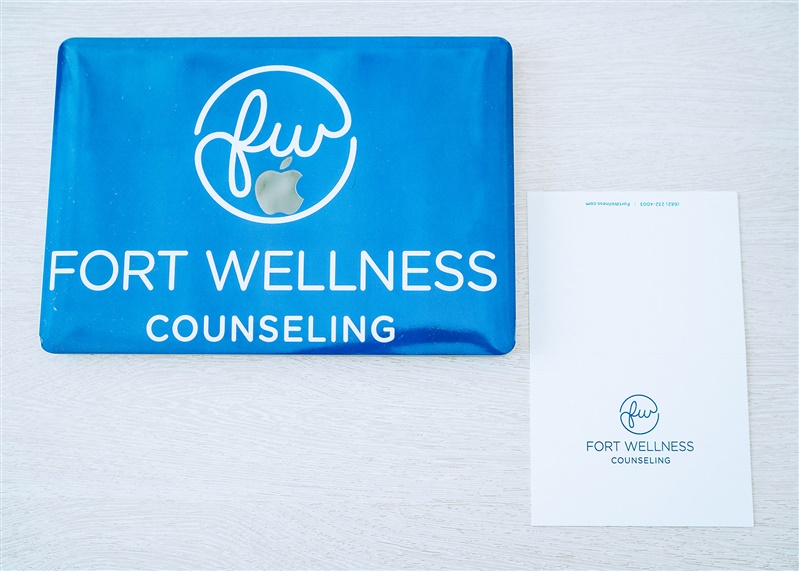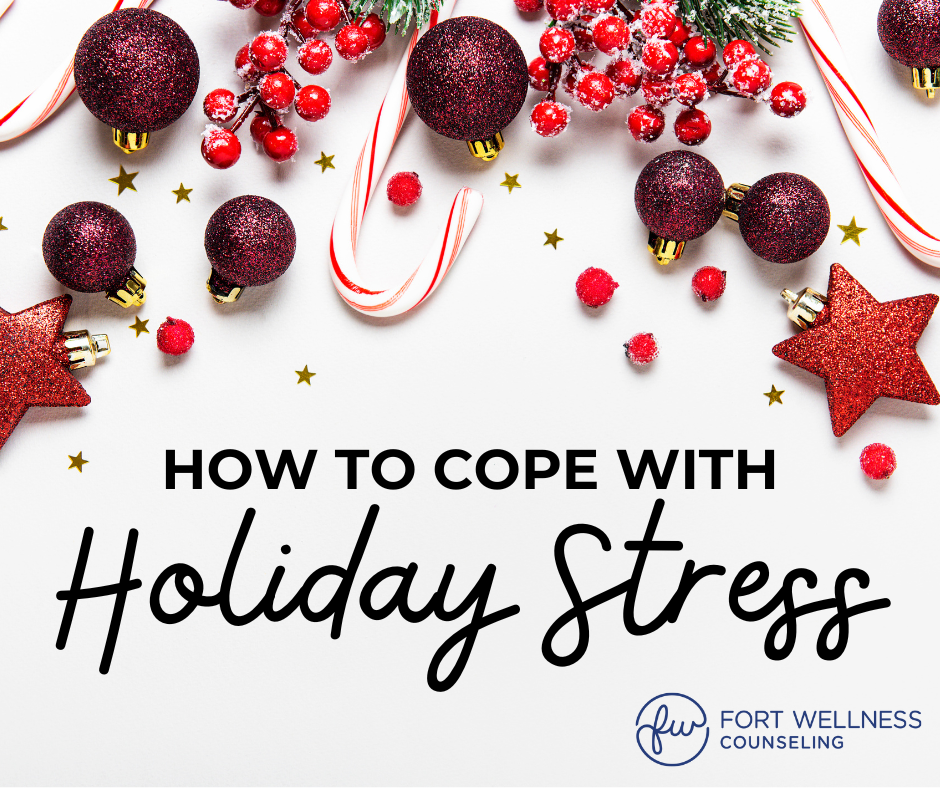
Family Vacations & Your Mental Peace: Strategies for Stress-Free Summer Travel
Family Vacations & Your Mental Peace: Strategies for Stress-Free Summer Travel By: Rane Wallace, MS, LPC, LCDC, SAP Of course, traveling with your family is

In this article, I’m going to discuss a problem that is continuing to get worse in our society. It’s called FOMO. I’m sure you have heard about it. You probably know precisely what it is and what it feels like. Don’t we all? In this article, I’m going to define FOMO, help you understand why you might feel this way, and then give you some practical strategies that you can use to combat this social phenomenon. After reading this article, you’ll be better armed in the fight against FOMO. Read below to start that fight.
You have probably been there before. You are scrolling through social media. And then you see your friends went to a gathering or a party. A party that you did not get invited to. In fact, excluded. Or perhaps you come across pictures of a concert or a walk or an event that looks amazing, but that you did not attend.
That can often trigger a very particular anxiety known as FOMO – the fear of missing out. It’s the same feeling we got in lower school when everyone in your grade was going to some party but you were not invited to it. Or finding out that a group of your friends went out to dinner. And it was without you. How dare they. Right?
Fear of missing out (FOMO) is a social anxiety that is associated with the sense of rejection and not doing enough. It is thinking that everyone else in their lives are having way more fun, living better lives, and or experiencing things that are way better than you are.
We can talk about FOMO in situations where you feel rejected by not being included in something. This can make you feel lonely or slighted. We can also talk about FOMO when there is a pressure to do as much as you can. You feel like you must do everything. You must take part in different events to keep up with what you perceive others are doing.
For example, you feel like you must go to a specific spot or do a specific experience. If you don’t, you think you are missing out on something special, important, or even life changing.
At our core, we are deeply social creatures. That is reflected in two ways. First, you want to fit in with others. Acceptance and belonging are two important core needs. When you see your friends doing stuff without you, it triggers the fear that they are excluding you. It could trigger you and make you feel like you are not accepted or that you do not belong. It can hurt and be painful.
The second reason is that you likely use comparisons as a way of seeing how well you are doing in life. We all do it. When you see others achieve or experience a thing you have not done, it can feel like you are falling behind. It can unleash a sense of anxiety – what if you are not doing well enough? What if others will notice or judge you for it?
FOMO is a social anxiety that has been amplified in the 21st century by social media. You get to see the best moments of other people’s lives. And you feel like you must compare yourself to all of them. It can make you more aware of the things that everyone is doing when you are not there. It can also maximize the sense of not doing enough or feeling isolated because other people do more things than you seem to do.
What’s even worse about that, is that a lot of times when we are depressed, we are prone to scroll through our social media feeds. We are yearning for connection, but it can do the exact opposite of that when you are trying to get that core need met.
FOMO can leave you feeling lonely and rejected in situations when it is not actually happening. It can contribute to anxiety and negative ideas about yourself. It can also lead to depression. It can make you compare who you are to others. It can make you devalue your own accomplishments.
FOMO can also be weaponized against you. Many companies and influencers use FOMO to sell their events and products that are not necessarily good or useful for you. Why? Because it works.
Everyone feels FOMO from time to time. Or rather, I should say mostly everyone. But if it becomes a problem, you can take a few simple steps to reduce the impact it has on your emotions and decision-making.
Your mind is usually eager to jump to a conclusion. It is usually a negative conclusion. But this is an impulse that is not always reflective of reality. Try to avoid this. You only have a limited amount of information and not enough to make a judgment. First, before jumping to conclusion, get the other perspectives. And then, remember that you might be thinking too negatively. Did they intentionally decide to ignore you? Chances are that the facts you used to build your conclusion are irrational and not really facts. Cognitive behavioral therapy can be utilized to help combat jumping to conclusions.
Logical fallacy is when we build a case on something with what we perceive to be facts. Since A is true, it makes B, C, D, and E true. Right? But wait a minute. If A isn’t true, it can make B, C, D, and E false. Here is an example of logical fallacy relating to jumping to conclusions:
Because they intentionally excluded me, it means that they don’t like me. Since they don’t like me, that must mean that they don’t think that I’m fun. Since they don’t think I’m fun, they don’t like hanging out with me.
Whoever said A was true? After all, how do you know they intentionally excluded you? Is it possible they just so happened to run into each other at a kid’s sporting event and then went to grab lunch afterwards?
Your thoughts can run away with themselves. They can become a very slippery slope. Combat logical fallacy and try not to jump to conclusions.
Since FOMO is a social feeling, you can relieve the anxiety with social connection. Don’t reach out to vent or complain. Rather, reach out to talk to someone. It reassures you that you have other people who care about you and are there for you. Even a little exchange of greetings is likely to make you feel better.
You might be sad that someone hasn’t connected with you, but what initiative are you taking to make that connection happen? Friendship is a two-way street. You cannot expect the other person to constantly make all the first moves. Put the ball in your court and focus on what you can control.
Just because you are not at the concert, or a party, doesn’t mean you can’t have fun. Schedule a fun activity for yourself. Or one with a friend. It’s a good idea to make it a social thing. But if not, find time to do an activity you truly enjoy.
Distract yourself from the negative emotions. Focus on the positives. You can also think of some fun things that you did recently. Instead of focusing on what you are not doing, focus on what you are doing and what you have done.
If you want to get invited to things, you can express an interest to that person. Tell them you would like to join the next time. You might not always get an invite. But at least it will give you clarity. Often, you will get an invitation.
Too many times, we do not express what we want. You must communicate your needs. Others might assume that we would not want to take part. This can also happen if you turn down invitations or appear unfriendly. Communicate your feelings openly without attacking the person for excluding you.
You don’t have to wait around. You can also do your own things. Put the ball in your court and take the initiative. It might take a bit more work, but it can be very rewarding. It will allow you to feel more in control over your life and make new connections. Organize your own parties and get-togethers to ensure you get the experience you truly want.
If you feel left out time and again, it might be a good idea to evaluate your relationships. Ask yourself if the people around you respect and value you. Do you feel included and welcome most of the time? If you are not, you might want to look for new connections or communicate to your friends how you feel. Don’t like their answer? If so, you might want to re-evaluate and take stock of your relationships.
Ask yourself if you truly want an experience or whether you are just feeling peer pressure. Are you eager to go to that party or take that trip? Look at the priorities in your life. Perhaps you are focused on your career right now or saving for an important purchase. Allowing yourself to do what matters to you can help you feel less FOMO. Focus on your priorities and accept that you cannot do everything and be everywhere.
Attending therapy with a counselor can be beneficial, especially when it comes to your perceptions and learning how to manage your emotions more effectively. Therapy has many benefits. Meeting with a therapist can help you improve symptoms of anxiety, depression, FOMO, and so many more. You can learn more about the services we provide and schedule your appointment to get started today.
I’ve got one last tip for you. And that tip is to get outside of yourself. Instead of thinking about why people aren’t inviting you, think instead about how you can help to include others. See someone that is new to a big group? Invite them over and make them feel welcome. After all, we don’t like it when we are the newest to the group and feel intimidated. Make that process easier for someone else. By doing so, it’ll help you think less about your own FOMO and more about how you can help other people. Be the change that you want to see in the world. We will all be better for it.
If you found this article helpful, you can like and follow us on Facebook, Instagram, LinkedIn, and YouTube. We publish regular updates on these social media channels whenever we publish a new blog article.

Family Vacations & Your Mental Peace: Strategies for Stress-Free Summer Travel By: Rane Wallace, MS, LPC, LCDC, SAP Of course, traveling with your family is

Mental Health 101: Debunking Common Myths By: Rane Wallace, MS, LPC, LCDC, SAP Every May, Mental Health Awareness Month raises awareness and advocacy for people

Medical Trauma: Understanding and Healing from Difficult Healthcare Experiences By: Rane Wallace, MS, LPC, LCDC, SAP Over the years, I’ve come to understand that for

Social Media Depression: Beyond FOMO to Algorithm-Induced Mood Change By: Rane Wallace, MS, LPC, LCDC, SAP I’ve seen this happen so many times with patients,

How to Wind Down at Night: Simple Sleep Hygiene Tips By: Rane Wallace, MS, LPC, LCDC, SAP Sleep hygiene might sound like a fancy term,

Pregnancy and Postpartum Anxiety Treatment in Fort Worth By: Rane Wallace, MS, LPC, LCDC, SAP Have you or a loved one experienced anxiety during pregnancy

Breaking the ‘New Year, New Me’ Mindset: A Guide to Sustainable Change By: Rane Wallace, MS, LPC, LCDC, SAP In my years as a therapist,

How to Support a Partner with Chronic Illness: A Mental Health Perspective By: Rane Wallace, MS, LPC, LCDC, SAP Living with a chronic illness can

EMDR for Attachment Issues: Building Healthy Relationships By: Rane Wallace, MS, LPC, LCDC, SAP When you hear “EMDR therapy” (Eye Movement Desensitization and Reprocessing), you

How to Deal with a Narcissistic Partner By: Rane Wallace, MS, LPC, LCDC, SAP Do you ever feel like your partner thinks they’re better than

How to Recover from Burnout By: Rane Wallace, MS, LPC, LCDC, SAP Burnout is a common struggle in today’s fast-paced world. Life’s relentless demands can

The Benefits of Attending Couples Counseling By: Rane Wallace, MS, LPC, LCDC, SAP There’s a misconception about couples counseling – that it signals the end

Things to Know About Individual Counseling in Fort Worth, TX By: Rane Wallace, MS, LPC, LCDC, SAP May is Mental Health Awareness Month, a good

Everything You Need to Know About EMDR Therapy By: Rane Wallace, MS, LPC, LCDC, SAP Have you heard about EMDR therapy and want to learn

What is Nature Therapy? (And Why You Should Be Doing It!) By: Rane Wallace, MS, LPC, LCDC, SAP Let’s face it: there’s just something about

The Benefits of Virtual Therapy in Texas By: Rane Wallace, MS, LPC, LCDC, SAP Technology is changing everything, and healthcare is no different! Thanks to

How to Get Over a Breakup By: Rane Wallace, MS, LPC, LCDC, SAP Breaking up with a romantic partner is painful – no matter the reason

How to Set New Year’s Resolutions By: Rane Wallace, MS, LPC, LCDC, SAP How to Set New Year’s Resolutions Setting goals gives us a sense

How to Cope with Holiday Stress By: Rane Wallace, MS, LPC, LCDC, SAP Say No to Prevent Burnout There are an abundance of obligations that

Trauma Therapy in Fort Worth: Types, Benefits & More By: Rane Wallace, MS, LPC, LCDC, SAP Believe it or not, an estimated 60% of men

How to Communicate Better in Relationships By: Rane Wallace, MS, LPC, LCDC, SAP Whether with coworkers or your significant other, the ability to communicate effectively

How to Prevent Seasonal Affective Disorder (SAD) By: Rane Wallace, MS, LPC, LCDC, SAP If you’re struggling with winter blues, know you’re not alone. SAD

What is a Functioning Alcoholic? By: Rane Wallace, MS, LPC, LCDC, SAP When someone is deemed a ‘high-functioning alcoholic,’ they’re able to carry out daily

How to Help Yourself – And Others – with Suicidal Ideation By: Rane Wallace, MS, LPC, LCDC, SAP September is Suicide Awareness Month. And while

32 Questions to Strengthen Your Relationship By: Rane Wallace, MS, LPC, LCDC, SAP When was the last time you had a meaningful conversation with your

The Fawn Response: How Trauma Can Lead to People Pleasing By: Rane Wallace, MS, LPC, LCDC, SAP Do you often find yourself putting the needs

How to Overcome ‘Hangxiety’ (Post-Drinking Anxiety) By: Rane Wallace, MS, LPC, LCDC, SAP Thought the consequences of drinking heavily were merely physical? Unfortunately, you’ll have

What is Box Breathing? Plus Tips for Beginners By: Rane Wallace, MS, LPC, LCDC, SAP Ever heard of box breathing? This popular relaxation technique involves

Do Mindfulness Exercises for Anxiety Work? By: Rane Wallace, MS, LPC, LCDC, SAP Do mindfulness exercises for anxiety work? If you (or people in your

What is Trauma Bonding? 4 Warning Signs By: Rane Wallace, MS, LPC, LCDC, SAP If you’ve ever been in an abusive relationship and felt bonded

Why Do We Cry? 4 Reasons and Crying Benefits By: Rane Wallace, MS, LPC, LCDC, SAP There’s no getting around it – crying is part

What Is Habit Stacking? (And How to Do It) By: Rane Wallace, MS, LPC, LCDC, SAP Supporting our mental health is one of those goals

5 Tips for Living with Someone with OCD By: Rane Wallace, MS, LPC, LCDC, SAP While living with OCD (obsessive-compulsive disorder) can be demanding, living

What is Assertive Communication? By: Rane Wallace, MS, LPC, LCDC, SAP So, what is assertive communication? Well, in a nutshell, this communication style aims to

PTSD Counseling in Fort Worth: Proven Coping Strategies By: Rane Wallace, MS, LPC, LCDC, SAP For those who didn’t already know, post-traumatic stress disorder (PTSD)

Brainspotting vs. EMDR: What’s the Difference? By: Rane Wallace, MS, LPC, LCDC, SAP According to the National Council for Mental Wellbeing, 70% of American adults

Mindfulness Exercises to Strengthen Your Recovery By: Rane Wallace, MS, LPC, LCDC, SAP Are you recovering from alcohol and/or substance abuse? Self-improvement is a life-long

How to Find a Counselor in Fort Worth By: Rane Wallace, MS, LPC, LCDC, SAP Are you considering therapy? If so, finding a counselor in

How To Not Be Codependent In A Relationship By: Rane Wallace, MS, LPC, LCDC, SAP Wondering how to not be codependent in a relationship? Sometimes

What is Parental Anxiety? Coping Tips from a Therapist By: Rane Wallace, MS, LPC, LCDC, SAP Every parent wants to shield their child from danger

What is EMDR Therapy? By: Rane Wallace, MS, LPC, LCDC, SAP Ever heard of eye movement desensitization and reprocessing therapy? More commonly known as EMDR,

8 Proven Tips to Sleep Better at Night (and Improve Your Mental Health) By: Rane Wallace, MS, LPC, LCDC, SAP Struggling with restless nights and

How to Have a Healthy Relationship with Social Media By: Rane Wallace, MS, LPC, LCDC, SAP In today’s world, there’s no escaping the presence of

What Is The Goal of Psychotherapy? By: Rane Wallace, MS, LPC, LCDC, SAP Have you been considering psychotherapy? The start of a new year is

What is Brainspotting Therapy? By: Rane Wallace, MS, LPC, LCDC, SAP Brainspotting therapy is a kind of alternative therapy that is gaining immense popularity in